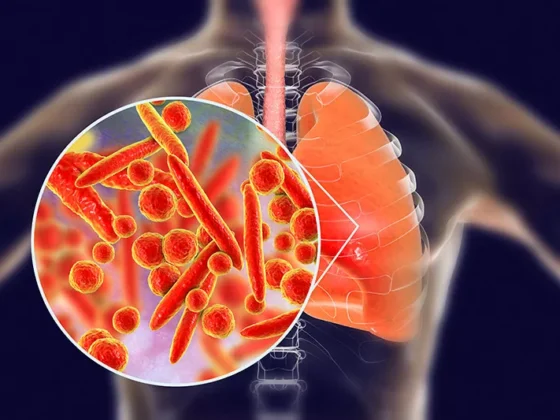New Delhi, 22 November 2024: Breathlessness and coughing are symptoms many people associate with temporary conditions like colds, the flu, or minor respiratory infections. However, medical experts caution that persistent coughing and breathlessness should not be dismissed as normal, especially when they linger or worsen over time. These symptoms could be early indicators of more serious underlying health issues, including progressive lung diseases such as chronic obstructive pulmonary disease (COPD), pulmonary fibrosis, or asthma. Recognizing and addressing these signs early could be crucial for preventing long-term complications and maintaining lung health.
You may also like –

The Dangers of Ignoring Symptoms: The Significance of Breathlessness
When we talk about breathlessness, or dyspnea, it’s not just about feeling short of breath. It can hint at serious issues such as chronic obstructive pulmonary disease (COPD), asthma, or heart failure. Experts stress that if breathlessness happens during daily activities or even at rest, it needs immediate medical attention. Ignoring these signs can lead to worsened lung function and overall health deterioration.
Don’t Overlook Coughing
Coughing acts as the body’s way to clear out the airways, but if it persists, it can signal something more serious. According to health professionals, a chronic cough might be associated with conditions like bronchitis, pneumonia, or even lung cancer. If a cough lingers for more than three weeks or comes with symptoms such as weight loss or night sweats, it’s essential to consult a healthcare provider.
Understanding Chronic Obstructive Pulmonary Disease (COPD)
COPD is a progressive disease affecting the lungs, primarily caused by long-term exposure to harmful substances like smoking and air pollution. The disease typically leads to increasing breathlessness over time, making early diagnosis and management vital. Health experts suggest regular screenings for at-risk individuals, particularly smokers or those with a history of lung problems.
The Impact of Asthma
Asthma can also cause breathlessness and coughing. It leads to inflammation in the airways, making breathing a struggle. While it’s manageable with medication, uncontrolled asthma can result in serious complications. Recognizing triggers and sticking to treatment plans are essential for preventing asthma attacks and living well.
The Power of Early Detection
Routine health check-ups are essential for identifying lung diseases early on. Health experts recommend pulmonary function tests for individuals with risk factors, as these tests help assess lung capacity and function, highlighting any issues that may need further examination. Early intervention can greatly enhance treatment results and quality of life.
Lifestyle Modifications for Improved Lung Health
Making certain lifestyle changes can foster better lung health. Quitting smoking, steering clear of pollutants, and staying physically active can all boost lung function. Additionally, a diet rich in antioxidants can help with inflammation and support respiratory well-being. Experts encourage individuals to proactively manage their health to avert serious lung issues.
When to Get Medical Help: Spotting Warning Signs
It’s vital to understand when to seek medical assistance. If breathlessness or coughing is accompanied by chest pain, leg swelling, or a fever, immediate medical help is essential, as these could signify a more serious health problem that needs urgent care.
Having open conversations with healthcare providers is key to managing lung health effectively. Patients should feel empowered to discuss their symptoms authentically and ask questions about their conditions. This dialogue fosters a deeper understanding and can lead to more tailored treatment plans.
Read Also – Walking Pneumonia Symptoms: The Silent Respiratory Illness You Could Be Overlooking
To end with, breathlessness and coughing are not to be ignored—they can signal progressive lung diseases needing attention. By recognizing the risks, identifying symptoms, and seeking timely medical advice, individuals can take proactive measures for better lung health. Awareness and education play a significant role in preventing severe health complications and ensuring a healthier future.











